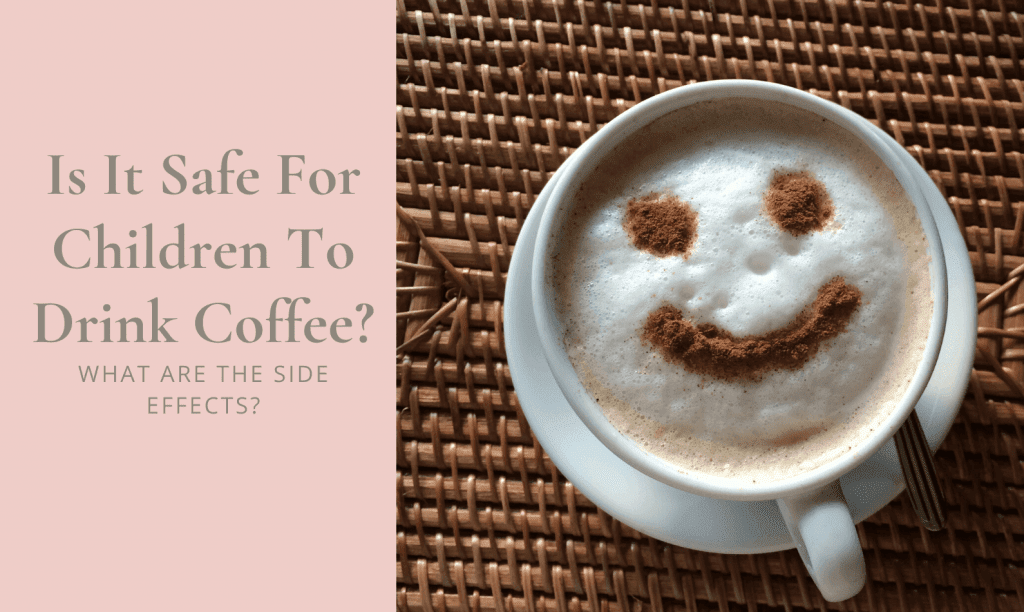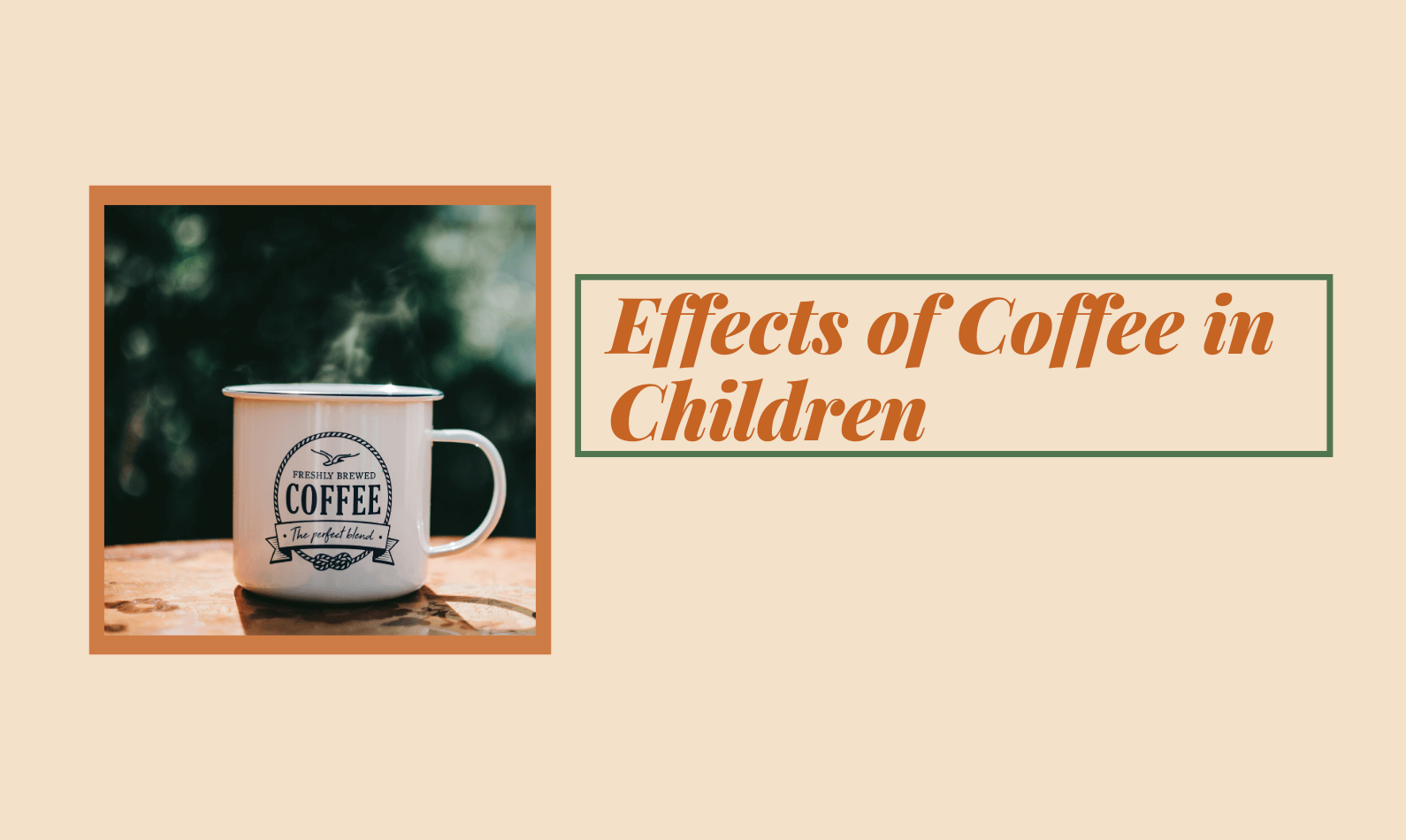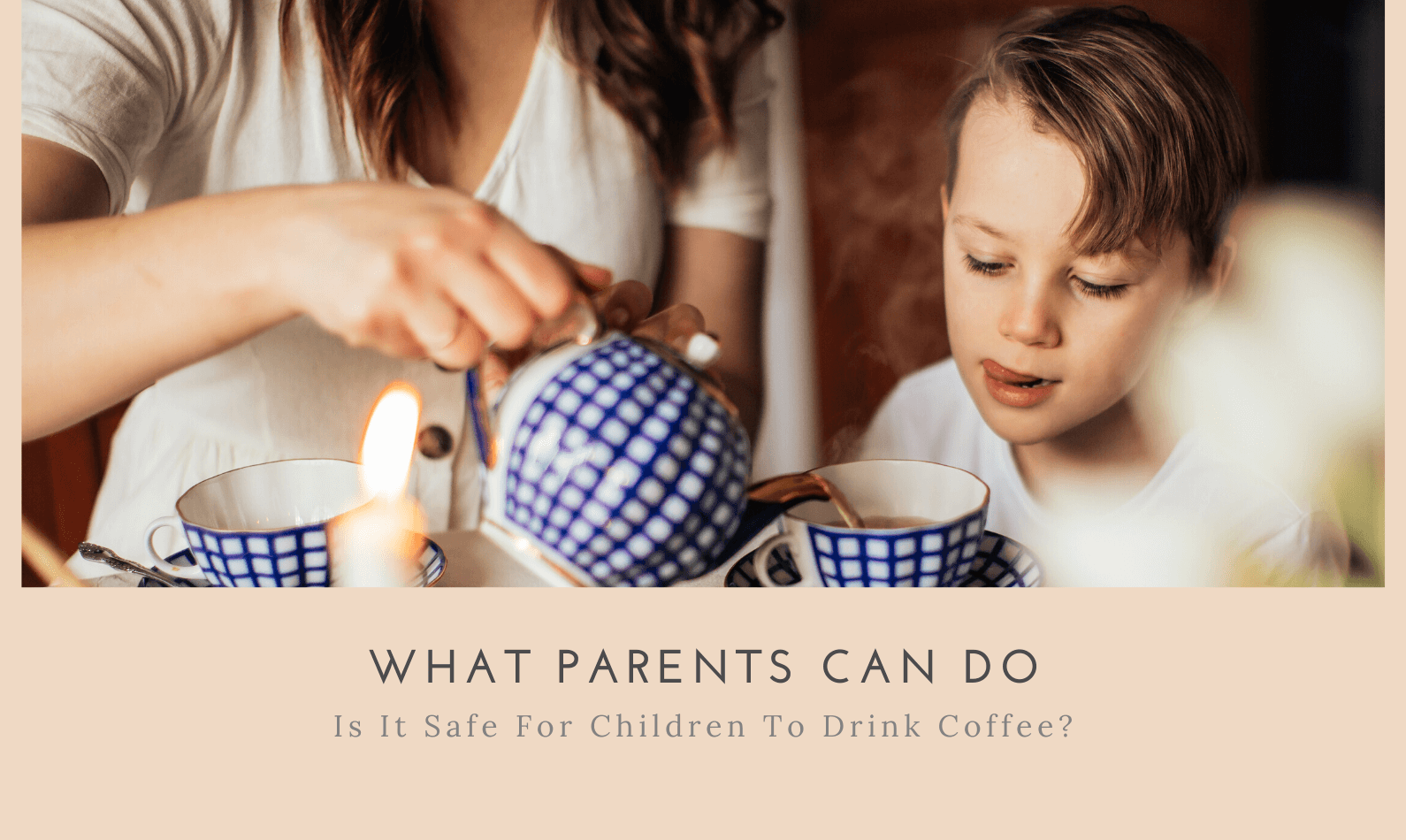Is It Safe For Children To Drink Coffee? Coffee is a brewed beverage made from roasted coffee beans that resemble the seeds of berries from certain Coffea species. Coffee plants are now cultivated in over 70 countries, primarily in the equatorial regions of the Americas, Southeast Asia, the Indian subcontinent, and Africa. The two most commonly grown are C. arabica and C. robusta.
It is one of the most renowned drinks globally, and it comes in a variety of ways (e.g., espresso, French press, caffè latte). It is usually enjoyed hot, although iced coffee is a popular choice as per individual. Medical science tells that moderate coffee consumption is favorable or mildly beneficial in healthy adults.
In what is now Yemen, coffee seeds were first roasted and brewed like how it is now prepared for drinking. But the coffee seeds had to be brought from East Africa to Yemen, as Coffea arabica is thought to have been aboriginal to the former.
As of 2018, Brazil was producing one-third of the world’s total coffee beans. Coffee is a major export commodity, as the top legal agricultural export for numerous countries. It is one of the most valuable assets exported by developing countries. The way developed countries trade coffee with developing nations has been criticized and the impact on the environment with regards to the clearing of land for coffee-growing and water use. Therefore, the markets for organic coffee are expanding at a rapid pace.
Health Benefits of Coffee:
Coffee may have shown negative signs as heart risks and all in the past, but newer research shows that it may have health benefits. Recent studies have generally found no relation between coffee and an increased risk of heart disease or cancer.
Researchers have found a connection between decreased overall mortality and possibly cardiovascular mortality and coffee consumption, even though this may not be true in younger people who drink coffee a lot daily. Earlier studies didn’t always take into account that heavy coffee drinkers inherit smoking and other intoxicating habits. Coffee has health benefits, including protecting against Parkinson’s disease, type 2 diabetes, and liver disease, including liver cancer. Moreover, it appears to improve cognitive function and decrease the risk of depression.
However, high consumption of unfiltered coffee (boiled or espresso) has been associated with mild elevations in cholesterol levels. Besides, some studies found that two or more cups of coffee a day can increase the risk of heart disease in people with a specific — and fairly common — genetic mutation that slows the breakdown of caffeine in the body. So, how quickly coffee is being metabolized may affect one’s health.
Although coffee may have fewer risks than benefits, it lacks the nutrients than other fruits and juices possess. So it is not ideal for kids to consume coffee in a big amount daily.
Should Kids Be Allowed To Drink Coffee? What are the side effects?
As coffee drinkers, people are quite familiar with the stimulant effect that coffee can have. It has a knack for improving alertness, boosting one’s energy, and helping one to concentrate. This is the reason why a lot of adults choose to drink coffee. More and more consumption of caffeine has led to the advent of a lot of online coffee stores.
Kids like to imitate adults, and if they see you drinking coffee, they will want to try it for themselves. However, it is probably a bad idea for a young child to drink coffee. Caffeinated drinks can disrupt a child’s ability to perform tasks that require coordination, timing, or mental focus. So, children under the age of 12 should avoid caffeine.
Caffeine is absorbed into the body very quickly, decreases a person’s appetite, and causes them sleeping issues. If a child intakes excessive caffeine, they could suffer from agitation, muscle cramps, nausea and vomiting, and involuntary twitching. Children should not intake more than 4.5mg of caffeine per pound of body weight. A 12-ounce cup of coffee contains around 100mg of caffeine. Caffeine toxicity can lead to palpitations and an irregular heartbeat. Coffee guidelines are just that, too.
Is It Safe For Children To Drink Coffee?
After the age of 12, it is okay for a young person to drink coffee, but they should be encouraged to eat or drink good things. Milk is important for calcium. Water is necessary as it keeps the body hydrated.
Coffee is not a solo drink that contains caffeine. Tea, hot chocolate, and a lot of different types of soda too contain caffeine.
Energy drinks contain caffeine that is adored by children because many companies that make energy drinks are advertising them directly to children. Energy drinks contain hundreds of mg of caffeine per can. They can be very malicious even for adults, and they can be addictive, causing withdrawal symptoms if someone uses them regularly.
If one is worried about the health of one’s child, then one should focus on their overall diet and intake of caffeine rather than specifically demonizing coffee because, in the past, coffee was the major source of caffeine and the main ‘stimulant of choice.’ But those days are gone now. Coffee is not ideal for very young kids to take in, but it is not the worst thing to consume. Energy drinks, supplements, and even some snack bars now consist of much more caffeine.
Do be aware that flavored coffees with whipped cream have their sugar and calorie issues and should be used sparingly because of that.
-
Effects of Coffee on Children
Giving coffee to younger ones in America is almost taboo. Because of the popularity of coffee houses, more and more kids and teens are drinking coffee. People believe that coffee tampers with the growth of children, but many other side effects negatively affect children and teenagers.
1. Insomnia:
Children ages 5 to 12 require 11 hours of sleep per day, and teenagers require 9 to 10. These sound easier in theory, but if seen practically, then it’s quite impossible. More and more kids are using coffee to boost their energy levels during the day, but this could hamper their sleep cycle. Coffee has five times more caffeine per serving than a soda, and caffeine can reside for up to eight hours, contributing to sleep loss, which only serves to bolster the cycle. It is best for children and teenagers not to come close to coffee any time soon if they really are eager to boost their energy levels.
2. Cavities:
Coffee is acidic. Acidic drinks can cause damage to the mouth by weakening teeth; this leads to a decline in tooth enamel and an increase in cavities. Children who drink coffee may end up having oral health issues, such as cavities and loss of enamel.
3. Decreased Appetite:
Coffee may lead to decreased appetite. Growing children require a maintained diet full of protein, whole grains, fruits, and vegetables. When kids drink coffee, the stimulant effect decreases appetite, and declination in overall nutrition is likely.
4. Bone Loss:
Coffee is a diuretic and, as a result, increases urine production. Increased urination causes the loss of calcium from the body, which can lead to bone loss. In addition to being a diuretic, it also contains large amounts of caffeine that leach calcium from the body. For every 100 mg of caffeine injected, 6 mg of calcium is lost. For children, calcium is essential for bone growth.
5. Hyperactivity:
Coffee can create a series of behavioral problems in children, including hyperactivity, restlessness, and lack of concentration. The reason behind it is that the caffeine in coffee is a stimulant that increases energy and alertness. The effects of caffeine can last for hours — as long as an entire school day — and negatively affect peer relations, studying, and grades.
What Parents Can Do?
Nowadays, the rising trend of coffee consumers is so much that the Americans feel that intaking caffeine is simply a normal thing. The powerful truth is, caffeine is a powerful drug and stimulant. Intaking caffeine is also an addiction.
A daily habit of coffee or tea could be something that may harm one’s child’s health as they grow older. If a child is making a habit of drinking coffee or tea every day, the parent should consult the doctor regarding their development.
Read more about Standard Coffee Cup Sizes: Everything you Need to Know.
Talk to your child about why coffee might not be a healthy choice for them, and if you want your child to follow a family tradition of drinking a hot cup of coffee together, consider making a special drink that does not contain caffeine.
Conclusion: Is It Safe For Children To Drink Coffee?
So is It Safe For Children To Drink Coffee? Although much is still unknown, if you’re wondering when a “safer” age to give your child caffeine might be, the AAP suggests that you wait until the age of 12 and then restrict your child’s caffeine consumption to no more than 100 mg of caffeine a day, which is typical for a cup of home-brewed coffee. Keep an eye out for coffee shop varieties, as they may have a lot more caffeine in them!







